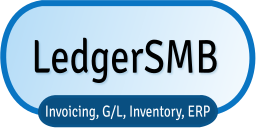We are an IT consultancy with specialties in Data Recovery and Linux administration. We've been using LSMB since 2017.
We originally gave Intuit Quickbooks a try on the recommendation of our now ex-CPA. Quickbooks is a paid service/software, and yet getting useful help from them was PAINFUL if not impossible. Think long hold times, and poorly trained representatives. I hated literally every minute I spent on the phone with them! Doubly so when all they could seem to say after they finally came on the line and I yet again repeated the issue we were having for the nth time, was that they didn’t have any answers and/or that there was NO @#$% solution! It was enough to make me ask why we were paying them! Based on our experience, anyone who does any kind of business with Intuit is doing themselves a disservice. (Google it if you don't believe me)
At the end of that year the CPA couldn't get any useful data out of our Quickbooks installation in spite of us following every procedure we were given. After much frustration and broken promises from Intuit, we migrated to LSMB, and only then could we generate the reports our CPA needed in order to file our taxes.
We have found LSMB to be the most promising and easy to work with bookkeeping platform and community that we've had the privilege of working with. LSMB has enabled us to go fully paperless. Now we generate the needed paperwork for a given customer, they sign it electronically, and we simply attach the signed copy to their workorder. Everything stays organized. Gone are the days of emptying filing cabinets into boxes and loading said boxes into storage for the next 10 YEARS!
From a technical perspective
To be fair, I've been in the IT industry for more than 20 years, so I have a bit more experience with things like software maintenance and server administration than most. That said, once you get LSMB up and running, things should be fairly problem free, providing you follow IT standard best practices:
1) Make frequent backups (for bookkeeping and POS software you should run a backup at least every night)
2) ONLY do software updates when you are able to afford the downtime caused by unexpected issues and have the time to correct them. Make a backup before you upgrade! We made a script to automate this on our installation, and so far have had no issues.
LSMB is offered as a docker container. The use of docker enables the developers to spend their limited time and resources on making the software better rather than having to troubleshoot and try to make it work on all the possible different system configurations out there. If you have a working docker installation on your server, then things generally JustWork(tm).
For our installation we used an Official LSMB docker container with a PostgreSQL docker container to sequester our accounting data away from the rest of the server and enable us to trivially backup our bookkeeping database from everything else and then restore it again without breaking anything else on the server should the need arise. Our backup and upgrade process is now accomplished via a single command, after which we login to our installation to make sure the update went smoothly. Our nightly backups are accomplished the same way.
Aside from a fairly minor learning curve, LSMB has worked out well for us. The developers are super friendly and have cheerfully walked us through getting everything setup while answering our many how-do-I's along the way. These guys have been EXCELLENT to work with and very quick to help solve to any issues we’ve had. And lets not forget that LSMB actually GENERATED REPORTS OUR CPAs COULD USE!!!!
– Josh Hefner
Computer and Data Magic
